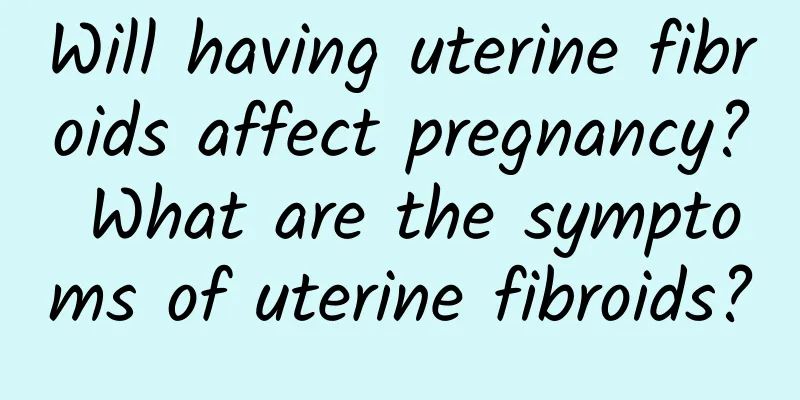Why does endometriosis cause dysmenorrhea?

|
Endometriosis is a common gynecological disease. That is, when endometrial tissue with growth function appears in other parts besides the mucosa of the uterine cavity, it is called endometriosis. Although the endometrium can grow in other parts away from the uterus, most of them appear in the peritoneal surface of the reproductive organs and adjacent organs in the pelvic cavity, so it is often clinically called pelvic endometriosis. If the endometrium grows in the myometrium, it is clinically called adenomyosis. Adenomyosis and endometriosis can exist at the same time, but most of them exist alone, mostly occurring in women aged 20 to 40. The typical clinical manifestation of this disease is that the abdominal pain is most severe from 1 to 2 days before menstruation to the first day of menstruation, and then gradually alleviates and lasts until the end of menstruation. The pain is progressive and can radiate to the vagina, anus, vulva, buttocks and inner thighs. Some patients have anal swelling and pain. Severe pain may be accompanied by nausea, vomiting, diarrhea and other symptoms. The cause of endometriosis is still unclear. Some people have observed that pregnancy or the use of sex hormones to suppress ovarian function can temporarily prevent the development of the disease, so it is believed that the onset of endometriosis is related to the cyclical changes of the ovaries. In addition, epidemiological surveys have also found that women with direct relatives suffering from the disease have a significantly increased chance of developing the disease, suggesting that the disease is related to genetics and may be a polygenic inheritance. Endometriosis is caused by the growth of endometrial tissue in other parts of the body besides the uterine cavity mucosa. Generally, the lesions grow in the ovaries. 80% of patients have lesions involving one ovary, and about 20% have both ovaries affected at the same time. Other lesions are mostly in the pelvic peritoneum, recto-vaginal septum, etc. Since the ectopic endometrial tissue includes endometrial glands and stroma, it is also affected by ovarian hormones and can undergo cyclical changes such as proliferation, secretion, and bleeding. Since the ectopic endometrial bleeding cannot be drained and stimulates the surrounding tissues, it can cause uterine contraction and lead to dysmenorrhea. The degree of pain caused by dysmenorrhea due to endometriosis is not necessarily proportional to the size of the lesion. For example, a larger ovarian endometriotic cyst may cause less pain, while small nodular lesions scattered on the pelvic peritoneum may cause severe pain. |
>>: The endometrium is too thin, what are the hazards to women preparing for pregnancy
Recommend
What are the complications of menopausal syndrome?
Once a woman reaches the age of 40, she will expe...
Can I eat kelp if I have pelvic inflammatory disease? Remember not to eat it with tea
Some women will easily have one or another dietar...
Where do the symptoms of uterine fibroids appear?
Where do the symptoms of uterine fibroids manifes...
Ectopic pregnancy may be caused by appendicitis perforation
Ectopic pregnancy may be caused by appendicitis p...
What are the characteristics of cervical precancerous lesions?
What are the characteristics of cervical precance...
What are the self-treatment methods for cervicitis?
What are the self-treatment methods for cerviciti...
What is normal amenorrhea?
Amenorrhea mostly refers to menopause. Under norm...
Why do we need to do curettage for adenomyoma? How to treat adenomyoma?
Why do I need to do a curettage for adenomyoma? A...
OMEGA weight loss: eat these 10 foods to lose weight
In addition to promoting brain development and pr...
Seventy percent of uterine fibroid patients are under 30 years old. Uterine fibroids favor young unmarried women.
Seventy percent of uterine fibroid patients are u...
Women with irregular menstruation can drink Danggui Yanhu Decoction appropriately
Menstrual disorders are a disease characterized b...
What is a female ovarian cyst
We know that the ovaries are located in the lower...
Does adnexitis affect life expectancy?
Adnexitis is a common gynecological disease in wo...
Experts explain the dangers of hyperprolactinemia
What abnormal conditions may be caused by hyperpr...
Symptoms of uterine fibroids
I believe that everyone is no longer unfamiliar w...









